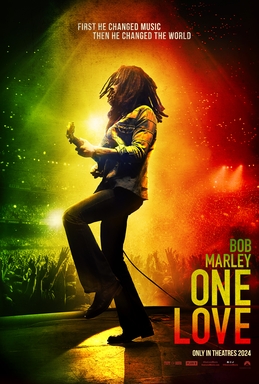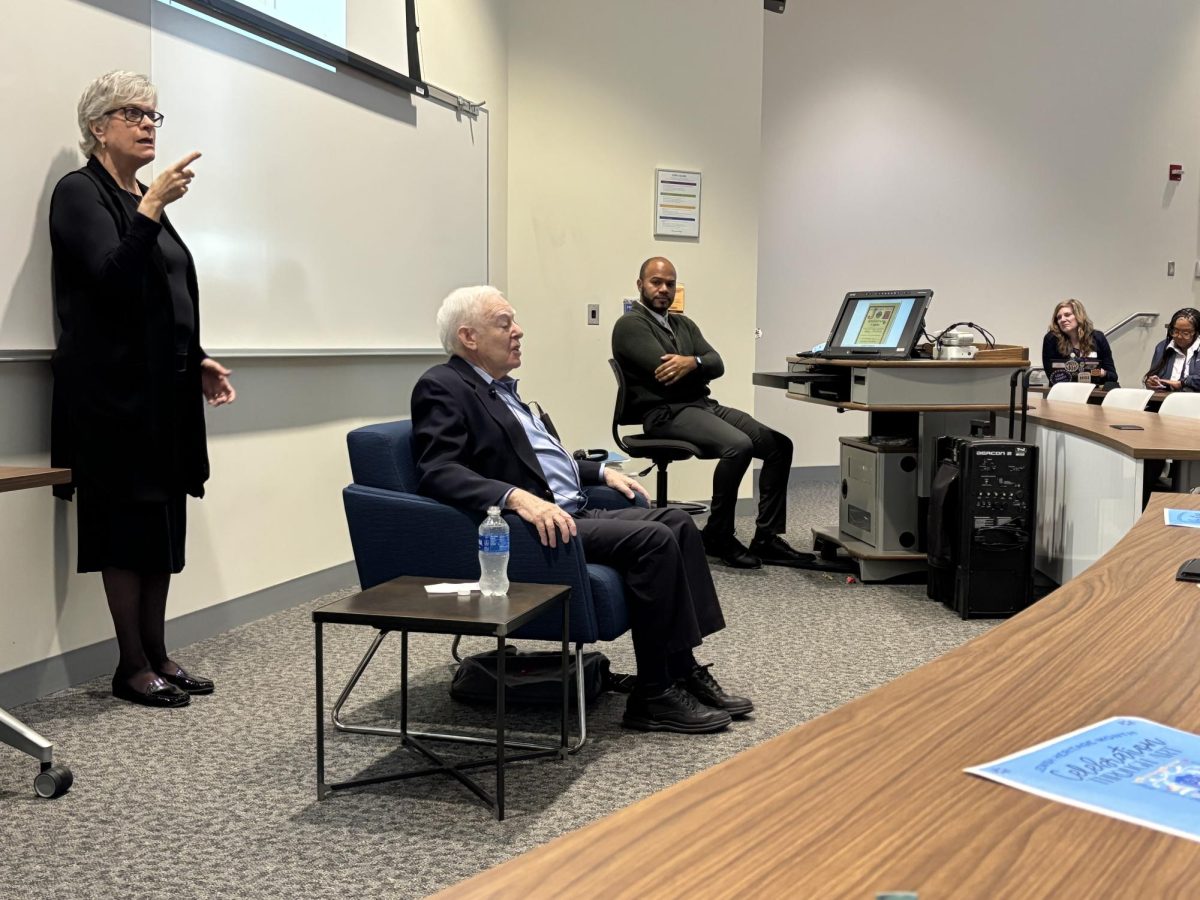
Post-COVID, theaters have struggled to bring in crowds like they used to. However, one type of film that usually performs well no matter the occasion is the biopic. Recent successes like Oppenheimer have rocked the box office, with that film in particular nearly grossing over one billion dollars worldwide.
So when Bob Marley: One Love was announced, I imagined we had a surefire success on our hands, and I was very excited to dive right into this film – especially with such a talented young cast. Kingsley Ben-Adir, who recently starred in Marvel’s Secret Invasion, takes the helm as the late Bob Marley, and Lashana Lynch from such huge films as The Marvels and No Time To Die plays Rita Marley.
Marley is the rare figure that isn’t just synonymous with a handful of songs or a specific trend in popular music, but an entire musical genre. He’s the man who brought reggae to the masses in a never-before-seen transformation of music, taking a genre that was once local to Jamaica and putting it on a global platform, spreading Jamaican culture, beliefs, and ideas on a worldwide level. His impact on a global stage was unique, being the first international superstar from a third world country.
During his upbringing into stardom, his home country of Jamaica was experiencing extreme violence due to a looming civil war and ongoing gang warfare. It truly is inspiring to see how someone can come from a clouded part of their country’s history and reshape it into a message of unity and peace – and, with all this in mind, One Love had a lot of ground to cover if they wanted to do their subject justice.
The story picks up after Bob Marley already has garnered some fame and during the tense years of political unrest in Jamaica. Following a press conference, Bob and his entourage go to a compound where they’re recording music. With the smell of pot and great tunes wafting in the air, two gunmen storm the building, shooting Bob and one of his friends in a very-not-chill way to end a jam sesh.
The rest of the movie follows the transformation of Bob’s stardom after the shooting and the Europe tour he did. It documents how his crew worked. His ideologies and how he wanted his music to make people feel.
The actors did a great job of representing Bob and Rita. Their Jamaican accents were spot on, and their mannerisms were presented extraordinarily well, portraying Bob as the carefree yet impactful young man he was. Bob spoke Rastafarian English with a slow and mannered cadence, almost presenting each word and sentence as a form of art: Ben-Adir nails this throughout the movie, embodying this distinct energy without missing a beat.
Lynch has previously played the role of sidekick in many movies, but here as Bob’s wife Rita, she brings an emotional grittiness to the character that makes her stand out and feel like more of a partner than the “love interest” she might have felt like in a different biopic.
Along with the two young stars, the other actors in the film made you feel like you were in this environment and involved in the story that was being told, and showing that while these international superstars may seem like they have it all, they too have their struggles. The Wailers (Marley’s bandmates) getting drunk on their newfound stardom and having to balance their Rastafarian beliefs with their newfound fame gave the film an additional layer of depth. Additionally, the political strife of Jamaican rule is rooted as a major background issue throughout the film, and only compounds Bob Marley’s mental trauma and the PTSD he had developed from the attempt on his life – all the result of Bob’s newfound space on the world stage.
However, with so many different topics and issues tackled in a single movie, the story is handled in a way that feels a bit choppy. Occasionally, something that will catch your interest and seem like it’s going to develop into something good will just be glossed over or even flat out ignored.
While the plot of the movie is mainly focused on this short stint of the superstar’s life, it does well to show the development between Bob, his bandmates and his loved ones. You feel the growth and the love almost flood off the screen as these relationships flourish and understand why this man had such an impact on those around him. It also excels when it’s showing the specifics surrounding the creation of their magnum opus — as well as Bob’s last released project while he was alive –- Exodus. Throughout the movie, bits of the album are played here and there, creating an almost building block effect of anticipation as you see it all come together in the end. While it may not be a satisfying document of Marley’s entire life, it definitely captures the process of creating a critically acclaimed record such as Exodus.
I would recommend this movie to most people – however, I would also want to clarify what the story is really about. If you are going in to see the full picture of how Bob Marley became the superstar he was, you will be thoroughly disappointed and perhaps a bit confused with some of the topics presented in the film, especially if you don’t have prior knowledge going in.
However, if you wanted to see Bob in his troubled later years – all the relationships he built during his battle with self-identity and philosophy; how he took on the world, spreading love and culture far beyond what had previously been done by someone from a third-world country; the people trying to silence him and the effect it had on him and his personal beliefs – and to appreciate the work he did for his final album, then this is your movie.




